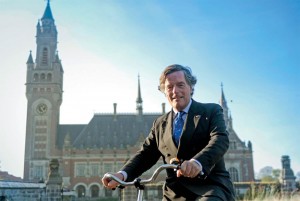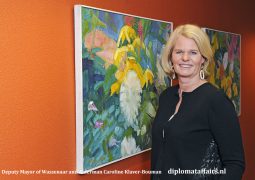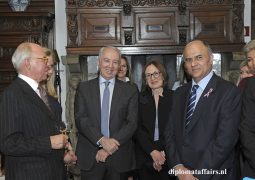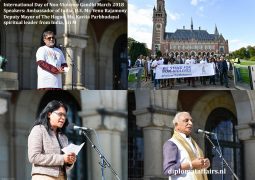Misunderstandings about Dutch elections

In the weeks before and after the national elections of Wednesday March 15th, 2017, many foreign diplomats, judges and other expats frequently asked me about it. I noticed a lot of misunderstandings about these elections. I will mention some of them now.
By Alexander Beelaerts van Blokland/Anton vander Riet
No, the Dutch do not elect both parts of our parliament, but only the 150 members of the House of Representatives (the so called ‘Tweede Kamer’, the Second Chamber). The Senate (the so called ‘Eerste Kamer’, the First Chamber) will be elected in another year and not directly by the people but via indirect elections: by the members of the so called ‘Provinciale Staten’, the counsillors of the twelve provinces, who themselves are elected directly by the people.
No, the Dutch do not elect a Prime Minister. We vote for a party, most people vote for the number one of a party on the list, but one can vote for another person of that list as well: preferential votes. We have many parties. Never in our history one party won the majority of 50 % plus one or more. In the recent elections of March 15th the party of Prime Minister Mark Rutte (liberals: VVD) became for the third time in this decade the largest party with 33 seats, all other parties do have 20 or less seats.
No, the leader of the winning party will not become automatically the Prime Minister. In most cases that leader will try to form a government together with other parties. Together they seek (but that is not obligatory) at least 76 seats in the new Tweede Kamer and a majority in the Senate as well. Although normally the leader of the winning party will become after some months the new Prime Minister, in recent history it happened that the number two in the elections (1977, Mr van Agt) or even the number four (1971, Mr Biesheuvel) became Prime Minister. The government of this moment has only two parties, but that is an exception. Most people expect a new coalition with at least three parties: VVD (33 seats), the christian democrats (CDA; 19 seats) an the social liberals (D66; also 19 seats); in total 71 seats. Not a majority, so probably at least one party will be added. Together with GroenLinks (GreenLeft) the coalition would have 85 seats, together with ChristenUnie (ChristianUnion) 76. But there are other possibilities as well.
No, when the elections do bring another party into power, that does not have as a consequence that Dutch ambassadors, mayors, prosecutors, judges etcetera will be replaced by others. Judges have been even nominated for life, nevertheless they will have to retire at the age of seventy. In my case: next year.
- Previous A ‘Cathedral of music’ for a World of Peace, Humanitarian activist and defender of Human Rights at Peace Palace
- Next Dutch society welcomes new Ambassadors at Diplomat Club Wassenaar
You may also like...
Sorry - Comments are closed













